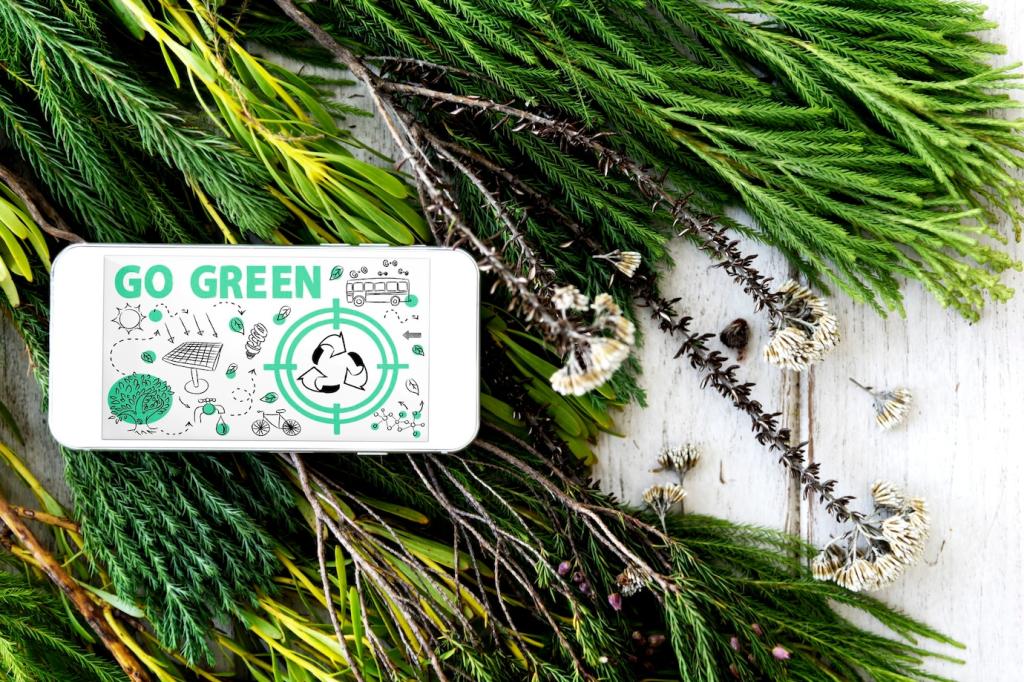Smart Home Technology for Sustainability
Energy Efficiency and Automated Savings
Intelligent Thermostats for Optimal Heating and Cooling
Smart thermostats have revolutionized the way homeowners manage indoor climate control. These advanced devices learn user patterns and preferences, automatically adjusting temperatures to maximize comfort while minimizing unnecessary energy usage. By sensing when a home is occupied or vacant, smart thermostats avoid wasting energy on heating or cooling empty spaces. Additionally, they offer the capability to control and monitor energy consumption remotely via smartphone applications, giving homeowners greater control and real-time feedback. Over time, the integration of intelligent thermostats leads to dramatic energy bill reductions and contributes significantly to a home’s overall energy savings, positioning them as an essential component of sustainable smart home systems.


Automated Lighting Systems for Reduced Consumption
Lighting plays a major role in a household’s energy use, and smart lighting systems provide an efficient, customizable solution. Utilizing motion sensors, timed schedules, and adaptive brightness controls, these systems ensure that lights are only in use when necessary and at optimal levels. Homeowners can fine-tune lighting throughout their residence, eliminating the waste often associated with traditional lighting. Dimming capabilities further reduce power draw, and remote management features allow users to check and adjust lights from anywhere. Smart lighting not only supports sustainability goals by cutting down energy use but also extends the lifespan of bulbs, resulting in fewer replacements and waste.
Smart Irrigation Systems for Lawn and Garden Care
Traditional irrigation systems often operate on fixed schedules, wasting significant amounts of water during rainfall or when the ground is already moist. Smart irrigation systems address this inefficiency by monitoring local weather conditions, soil moisture, and plant requirements in real-time. These systems automatically adjust watering schedules and volumes to ensure landscapes receive exactly what they need and no more. By preventing overwatering and runoff, smart irrigation not only supports healthy lawns and gardens but also drastically reduces water usage. Over time, this sustainable approach conserves considerable amounts of water, lowering utility costs and minimizing environmental impact.

Leak Detection and Automated Alerts
Undetected leaks can lead to substantial water waste, property damage, and expensive repair bills. Smart leak detection devices are equipped with sensitive sensors that monitor plumbing systems for even the smallest irregularities in water flow or moisture levels. When a potential leak is detected, these systems instantly alert homeowners through notifications, enabling rapid response before issues escalate. Many smart leak detectors can even shut off the water supply automatically in emergencies, providing additional peace of mind. This technology not only conserves water but also promotes the longevity of the home’s infrastructure, demonstrating how smart solutions safeguard both resources and property.

Real-Time Water Usage Monitoring
Smart home technology allows for detailed, real-time tracking of water consumption throughout a property. Integrated sensors and meters provide residents with a comprehensive breakdown of usage by fixture, zone, or appliance. This heightened visibility empowers individuals to pinpoint excessive water use and adjust their habits accordingly. Users can set goal-based alerts to further encourage conservation by making efficient water use a daily practice. Over time, such data-driven awareness creates a positive cycle of sustainability, where homeowners continually optimize their usage patterns and contribute to the larger goal of responsible water stewardship.
Waste Reduction and Smart Appliances
The kitchen is often a primary source of household waste, particularly in the form of spoiled or unused food. Smart refrigerators and pantry management systems are revolutionizing the way homeowners track and use their groceries. These appliances offer real-time inventory updates, suggest recipes with soon-to-expire ingredients, and send reminders when items approach their shelf life. Some smart solutions even support automated grocery ordering based on actual consumption patterns. By preventing unnecessary purchases and encouraging the consumption of existing goods, smart kitchen technology not only minimizes food waste but also saves money and supports more sustainable eating habits.
